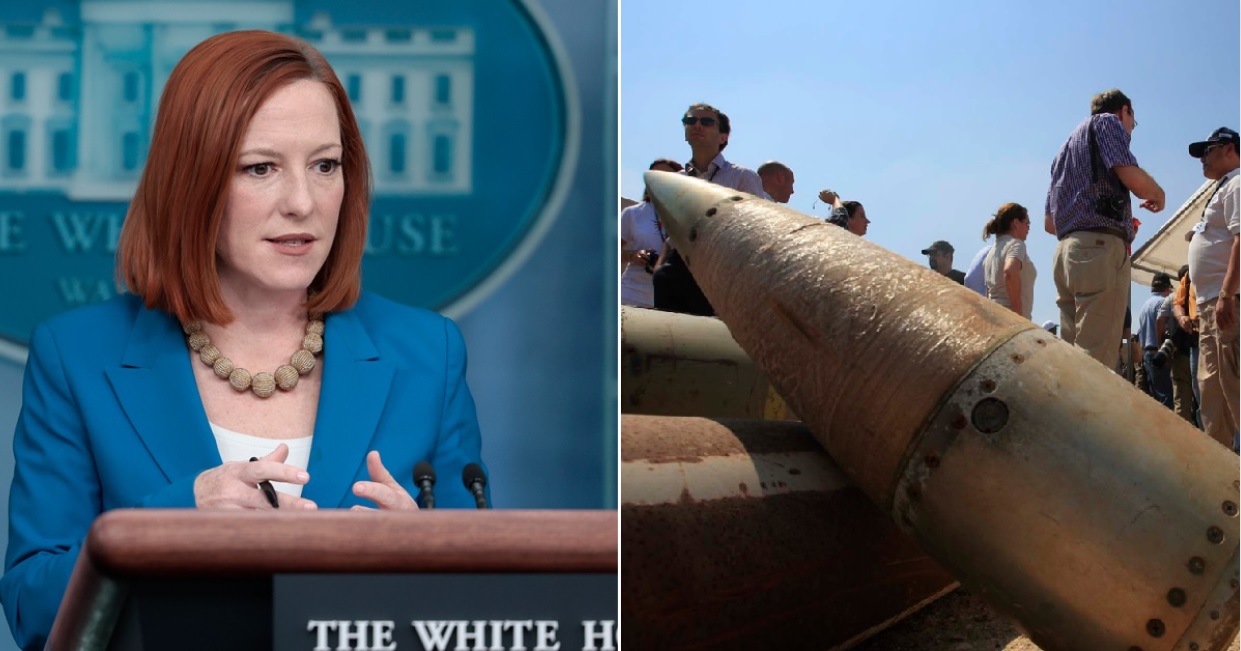
Flashback: Biden Admin Said Cluster Bomb Usage a Potential War Crime – Now They’re Shipping the Armaments to Ukraine
In a surprising turn of events, the Biden administration, which once condemned the usage of cluster bombs as potential war crimes, is now reportedly shipping armaments, including these controversial weapons, to Ukraine. This stark reversal in policy has sparked significant concerns and scrutiny from both critics and human rights organizations.
Cluster bombs have long been a topic of intense debate due to their indiscriminate nature and potential harm to civilians. These weapons are designed to disperse smaller submunitions or bomblets over a wide area, with the intention of targeting large enemy formations or installations. However, the unintended consequences make them highly controversial, as the bomblets often fail to detonate upon impact and turn into de facto landmines, posing a dangerous threat to civilians long after the conflict has ended.
Back in 2008, the Obama-Biden administration took a significant stance on cluster bombs by endorsing the Convention on Cluster Munitions, an international treaty that prohibits the use, production, stockpiling, and transfer of cluster munitions. Then-Vice President Joe Biden himself hailed this treaty as “a sensible and necessary step for US national security” and pledged the administration’s support to rid the world of these weapons.
Fast forward to more recent times, as Ukraine continues its struggle against Russian aggression, the Biden administration’s decision to provide arms to the Ukrainian military, including cluster bombs, has raised eyebrows. Critics argue that this contradicts their prior stance on these weapons and places innocent Ukrainian civilians at risk.
While it is crucial to understand the United States’ commitment to Ukraine’s sovereignty and right to defend itself, it is equally essential to question the potential repercussions of providing these armaments. The concerns center around the likelihood of civilian casualties and the potential for long-lasting damage to Ukraine’s infrastructure.
In response to the criticism, the Biden administration contends that the cluster bombs being sent to Ukraine differ from previous models, incorporating technology aimed at reducing the failure rate of submunitions to detonate. They argue that this makes them less likely to create hazardous conditions for civilians, military personnel, and post-conflict reconstruction efforts.
Nevertheless, human rights organizations remain wary of these assurances. They emphasize that cluster bombs, regardless of any technical advancements, still present a significant risk to civilian populations a factor that, in the past, led the Biden administration to condemn their use as potential war crimes. The stark irony of this reversal has not gone unnoticed.
This situation highlights the complexities and difficult decisions faced by administrations when attempting to navigate the intricate world of international politics. While it is plausible that the decision to provide cluster bombs to Ukraine may possess strategic justifications, it is crucial for the Biden administration to acknowledge the concerns raised by critics and human rights organizations as they grapple with the consequences of their actions.
Moving forward, it is imperative that all parties involved prioritize the protection of innocent lives and the adherence to international humanitarian law. The ongoing conflict in Ukraine demands a diplomatic solution, and while providing armaments may be a component of that strategy, it should be done with vigilance to minimize risks to civilian populations.
In conclusion, the Biden administration’s shift in policy regarding the usage and shipment of cluster bombs to Ukraine is indeed a stark contrast to its previous stance. This move has invited skepticism and criticism from various groups, raising concerns about the potential harm to innocent civilians. Acknowledging these concerns, it is crucial for the administration to ensure transparency, provide clear justifications, and demonstrate a commitment to minimizing civilian casualties as they navigate this volatile situation.
